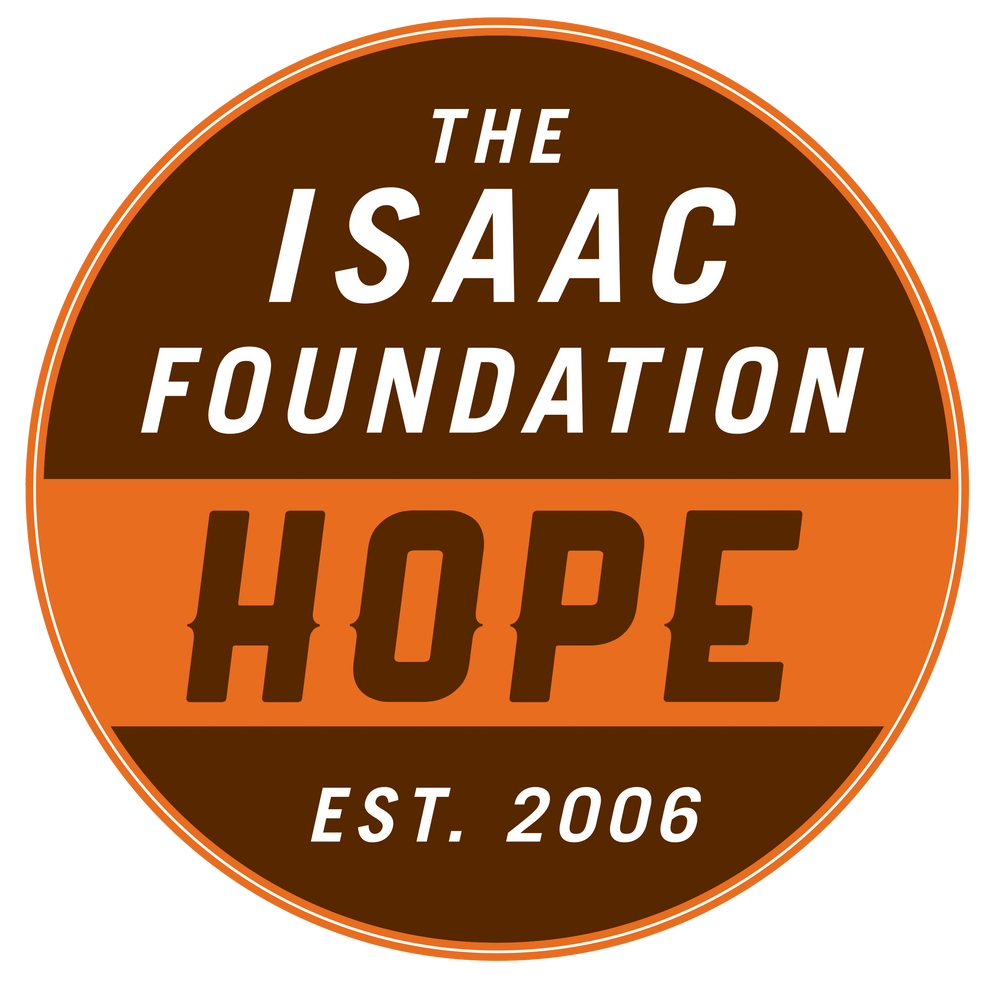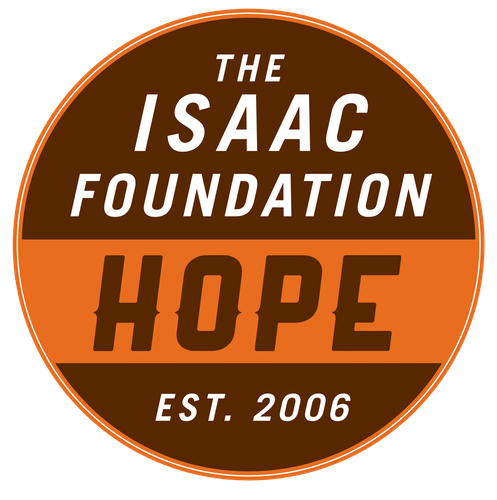



Published: 8/26/2011
by Mike Robinson - August 26, 2011
PALMERSTON
Friends and supporters of the More family here can now breathe a collective sigh of relief.
After an initial denial of funds for life-sustaining treatment required by 2-1/2 year old Jasper More, a campaign by friends, family members and the Issac Foundation has successful changed that verdict by getting funds to be instated for his treatment.
In a recent interview, Darren More explained his son, Jasper, was first diagnosed in April.
However, Darren said, additional bloodwork, biopsies, and DNA testing were needed to determine exactly which type of Maroteaux-Lamy Syndrome (MPS VI) was present. That was not learned until July.
Jasper suffers from a rare enzyme deficiency called MPS VI (also known as Maroteaux-Lamy Syndrome).
Victims lack an enzyme in their blood that breaks down cellular waste in the body. That waste builds up in the bones, tissues, organs, and muscles of affected individuals and lead to many devastating symptoms including heart and airway disease, corneal clouding, stiffening of the joints, shortened stature, and premature death.
To date, there are eight confirmed cases in Canada, and roughly 1,100 worldwide.
Darren explained that while the majority of Maroteaux-Lamy Syndrome symptoms are similar, “the one benefit of MPS VI is that it does not affect the cognitive functions.”
Once Jasper’s condition was verified, the family began the process to get Ministry of Health funding treatment, Darren explained.
While there is no known cure for MPS VI, a treatment does exist. Naglazyme is an Enzyme-Replacement Therapy (ERT) designed to provide patients with a synthetic version of the enzyme they are lacking, by infusing small doses into the patient’s bloodstream on a weekly basis.
The treatment for the disease can range from $300,000 per year for a small individual to $1-million for a young adult.
Due to the lack of an orphan drug policy in Canada, Naglazyme is available only to Canadian patients through the federal government’s special access program. It is being used for patients in Ontario, British Columbia, and Quebec through the program and is funded by the provincial governments respectively.
While the treatment does not provide a cure, it has been proven to slow the progression of MPS VI in patients.
Darren added that initially the family was told it would take about four weeks to learn if funding was approved.
The More family contacted their local MPP John Wilkinson’s office. Darren said the staff were helpful and helped to contact the Minister of Health’s office directly to get the application fast-tracked.
“In the meantime, John Wilkinson met with us personally and went over the process step-by-step for the funding of rare diseases.”
Darren explained that Ontario’s health care system is geared to the health of 13 million people. He then noted there were three potential steps in the funding application process.
The first was for exceptional access; next, compassionate access; and the last, rare diseases access for funds.
The family was denied funding in the initial step of the application.
As a result, the Isaac Foundation drafted a press release calling on the provincial Liberal government to take action and ensure that Jasper More begin the treatment he requires immediately.
In addition, Darren added that family and friends who wanted to support them began sending emails, phone calls, tweets, and messages to their local MPPs, the Ministry of Health, and the premier’s office.
He believes those messages made a difference, because shortly after, the family was accepted for compassionate care access for funding.
“We are very relieved and grateful,” he said.
However, he was sad that it came down to having to campaign in order to obtain the health care funding.
While he recognized Wilkinson’s comments that the health care system is “designed for the average Joe,” there was already a precedent to allow the funding.
He cited the example of the parents of 7-year-old Isaac McFadyen, residents of Campbellford, who successfully lobbied the Ontario government to fund his expensive enzyme replacement therapy when he was diagnosed in 2006. It, too, required a very public campaign to secure funding. Isaac has been receiving his weekly infusions at The Hospital For Sick Children in Toronto for five years.
Prior to starting treatment, Isaac suffered from severe compression of his spinal cord that required the removal of a piece of his skull and a portion of his vertebrae. In addition, he endured numerous other surgeries to treat complications of the advancing disease in his body. Since beginning his weekly infusions, Isaac’s liver and spleen have reduced back down to a normal size, his rate of growth has increased, his heart function has improved, and his heart valve disease has stabilized. In addition, Isaac has had no further progression of his bone and joint disease, airway disease, and compression of his spinal cord.
Andrew McFadyen, Isaac’s father, believes that progression of the disease has virtually halted in his son, allowing him to lead a normal, active, lifestyle.
The McFadyen’s started a charity in 2006 called The Isaac Foundation, and have been raising money to fund innovative research projects that aim to find a cure for MPS VI. To date, the charity has given over $240,000 to research projects worldwide. In addition, the charity works nationally and internationally to advocate for and support families dealing with MPS VI.
Elizabeth Witmer, Progressive Conservative MPP for Kitchener-Waterloo, agrees. She worked tirelessly to advocate for the McFadyen family while they were fighting for Isaac’s treatment in 2006.
Witmer said, “We fought this battle once already for little Isaac, and we’ve witnessed the staggering results this treatment has brought to his quality of life. Jasper [More] deserves the same opportunities and hope that this life- sustaining treatment will provide him.”
“Since receiving this diagnosis, we’ve been sick with guilt, grief, and worry. Our world will never be the same,” said Jasper’s mother, Pam.
“The only comforting factor since the diagnosis has been that, unlike other types of MPS, type VI has a treatment available. We want to be able to do everything we can for our little boy to give him everything he deserves. This disease is not his fault.”
Darren added, “In our minds, that precedent should have meant the funding would be available in the first place.”
He fully realizes that it is a rare disease and the enzyme treatment is expensive.
The intravenous treatment provides enzymes missing in Jaspers body and will require a four hour treatment once a week for the rest of his life, or until a cure is found, Darren said. For the family, it means weekly trips to London for treatment.
And yet, Darren considers his family lucky.
Of the seven types of Maroteaux-Lamy Syndrome, only three respond to the treatment. Without treatment, those with the disease rarely live past their teens.
Even so, while the drug went to clinical testing only 10 years ago, those getting it have shown a vast improvement in the quality of life and Darren has high hopes for his son as well.
He extended thanks to Wilkinson, MPP Ted Arnott and Witmer; friends and family members for their love and support; and the Issac Foundation, which was one of the family’s biggest advocates.
“I don’t know what we would have done without them,” Darren said.
He later noted, “We, as a family, are taking part in the Toronto Waterfront 5km marathon this year, and all money we raise will be going to the MPS Society of Canada for support and research for sufferers of this disease.”